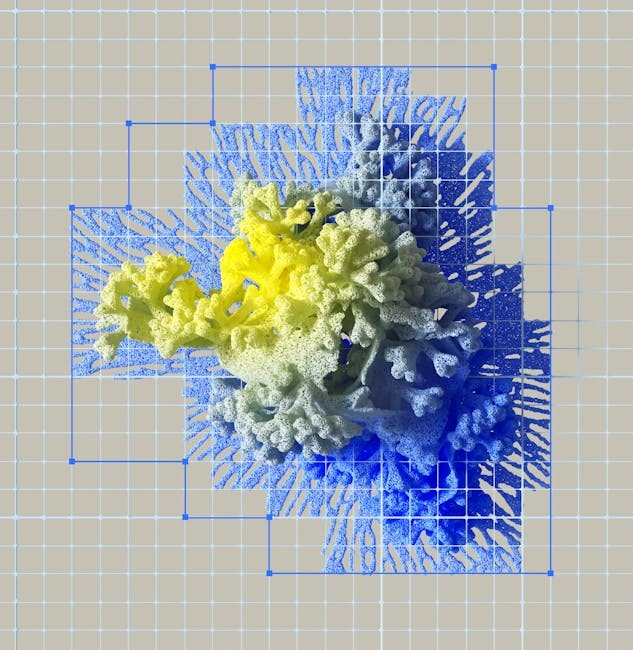Bioethics: Principles, Issues, and Cases, 5th Edition, by Lewis Vaughn, explores the philosophical, medical, social, and legal dimensions of bioethics, providing a foundational guide to understanding key ethical dilemmas.
Overview of the 5th Edition

The 5th Edition of Bioethics: Principles, Issues, and Cases by Lewis Vaughn offers a comprehensive exploration of bioethics, combining philosophical, medical, and social perspectives. Published by Oxford University Press, this edition provides updated discussions on key issues like euthanasia, reproductive technologies, and justice in healthcare. It integrates classic and contemporary cases with detailed explanations, making it a leading resource in bioethics education. The book is structured to guide readers through moral theories and ethical frameworks, while its robust pedagogy enhances understanding. Available in both print and digital formats, the 5th Edition is praised for its accessibility and depth, catering to students and scholars alike. With its balanced approach, it remains a cornerstone text in the field, addressing complex dilemmas with clarity and rigor.
Key Themes and Structure of the Book
Bioethics: Principles, Issues, and Cases, 5th Edition by Lewis Vaughn is structured to provide a logical progression through the field of bioethics. The book begins with foundational concepts, introducing ethics, bioethics, and moral reasoning. Subsequent chapters delve into core principles such as autonomy, beneficence, justice, and non-maleficence, offering a framework for ethical decision-making. The text then explores major issues, including life and death dilemmas, reproductive technologies, and genetic ethics, alongside societal concerns like healthcare justice. Each chapter integrates diverse perspectives, combining philosophical theories with real-world cases to illustrate practical applications. This balanced approach ensures readers gain both theoretical understanding and practical insight, making the book a valuable resource for comprehensive bioethics education. The clear organization and extensive coverage of contemporary topics enhance its effectiveness as a teaching tool.

Core Principles of Bioethics
Autonomy, beneficence, justice, and non-maleficence are the cornerstone principles of bioethics, guiding ethical decision-making in healthcare and beyond, as explored in the 5th Edition of Vaughn’s text.

Moral Theories and Ethical Frameworks
Moral theories such as consequentialism, deontology, and virtue ethics provide the ethical frameworks for analyzing bioethical issues, as detailed in Bioethics: Principles, Issues, and Cases, 5th Edition. These theories offer distinct approaches to evaluating moral dilemmas, from focusing on outcomes to emphasizing duties or character traits. The text integrates these frameworks with real-world cases, enabling a deeper understanding of their practical applications. By exploring these theories, readers gain the tools to critically assess complex ethical situations in healthcare and beyond. This comprehensive approach ensures that the book serves as a robust resource for both students and professionals seeking to navigate the intricacies of bioethics.
Principles of Autonomy, Beneficence, Justice, and Non-Maleficence
The principles of autonomy, beneficence, justice, and non-maleficence form the cornerstone of bioethics, as explored in Bioethics: Principles, Issues, and Cases, 5th Edition. Autonomy emphasizes respect for individuals’ rights to make decisions about their own care. Beneficence obliges healthcare providers to act in the best interests of patients, promoting their well-being. Non-maleficence requires avoiding harm, adhering to the maxim “do no harm.” Justice ensures fair distribution of healthcare resources and equitable treatment. These principles guide ethical decision-making in clinical practice, policy, and research, providing a framework to navigate complex dilemmas. The text examines these principles through case studies, illustrating their practical application and potential conflicts. This approach equips readers with a robust understanding of how these ethical principles shape healthcare and society.

Major Issues in Bioethics
Major Issues in Bioethics encompass critical topics such as end-of-life care, euthanasia, reproductive technologies, genetic ethics, and more, providing a comprehensive analysis of modern ethical dilemmas and their implications.
Life and Death Issues: Euthanasia, Assisted Suicide, and End-of-Life Care
The 5th Edition of Bioethics: Principles, Issues, and Cases delves into the complex ethical, legal, and societal challenges surrounding euthanasia, assisted suicide, and end-of-life care. These issues raise profound moral questions about the value of human life, patient autonomy, and the role of healthcare providers. The book examines the philosophical underpinnings of these debates, including the distinctions between active and passive euthanasia, and the ethical implications of medical decisions at the end of life. It also explores real-world cases and legal frameworks, such as “right-to-die” laws and palliative care practices. By integrating diverse perspectives, the text provides a nuanced understanding of how society grapples with these deeply personal and controversial topics.

- Covers ethical theories and principles relevant to end-of-life decisions.
- Explores legal and societal challenges in euthanasia and assisted suicide.
- Analyzes the role of autonomy, beneficence, and non-maleficence in end-of-life care.
Reproductive Technologies and Genetic Ethics
The fifth edition of Bioethics: Principles, Issues, and Cases addresses the ethical challenges posed by reproductive technologies and genetic advancements. Topics include in vitro fertilization, surrogacy, and genetic testing, which raise questions about parenthood, identity, and human dignity. The book also examines the moral implications of gene editing technologies like CRISPR, discussing potential benefits and risks, such as designer babies and unintended consequences. Furthermore, it explores issues of access and equity, highlighting how these technologies may exacerbate social inequalities. By integrating philosophical theories with real-world cases, the text provides a comprehensive analysis of the ethical dilemmas surrounding reproduction and genetics in the modern era.
- Examines ethical concerns in assisted reproductive technologies.
- Explores the implications of genetic engineering and gene editing.
- Addresses issues of equity and access in reproductive and genetic technologies.

Health Care and Society

Bioethics: Principles, Issues, and Cases, 5th Edition examines the societal dimensions of health care, focusing on access, resource allocation, and justice, while addressing systemic inequalities in health systems globally.
Justice in Health Care: Access, Allocation, and Resource Distribution
Bioethics: Principles, Issues, and Cases, 5th Edition delves into justice in health care, exploring equitable access, resource allocation, and distribution. It examines ethical dilemmas surrounding limited medical resources, emphasizing fairness and equity in treatment access. The text discusses how societal inequalities impact health care delivery, highlighting the moral obligation to ensure all individuals receive necessary care. Vaughn also addresses the challenges of rationing and prioritization, offering frameworks for making just decisions in resource-constrained settings. This section provides a comprehensive analysis of justice principles, equipping readers to critically evaluate and address disparities in health care systems globally.

Author’s Perspective and Contributions
Lewis Vaughn’s Bioethics: Principles, Issues, and Cases, 5th Edition offers a comprehensive and balanced perspective, integrating diverse viewpoints and real-world cases to foster critical thinking and ethical reasoning.
Lewis Vaughn’s Approach to Bioethics
Lewis Vaughn’s approach to bioethics is characterized by his ability to blend philosophical theory with practical application. In Bioethics: Principles, Issues, and Cases, 5th Edition, he systematically explores the ethical principles of autonomy, beneficence, justice, and non-maleficence, providing a clear framework for analyzing complex bioethical dilemmas. Vaughn’s methodical integration of influential moral theories, such as utilitarianism and deontology, alongside real-world case studies, ensures that readers gain both theoretical knowledge and practical insights. His balanced perspective encourages readers to engage with diverse viewpoints, fostering critical thinking and ethical reasoning. By combining comprehensive coverage of key issues with robust pedagogical features, Vaughn’s text stands out as a leading resource for students and scholars alike in the field of bioethics.
Unique Features of the 5th Edition
The 5th Edition of Bioethics: Principles, Issues, and Cases offers several unique features that set it apart from previous editions. Lewis Vaughn has updated the text to include the latest developments in bioethics, ensuring relevance to contemporary debates. New chapters and revised sections address emerging topics such as advanced reproductive technologies and genetic ethics, providing readers with a comprehensive understanding of current issues; The edition also includes expanded case studies and real-world examples, allowing for deeper analysis and application of ethical principles. Additionally, the 5th Edition incorporates enhanced pedagogical tools, such as discussion questions and ethical reasoning exercises, to facilitate learning. The integration of digital resources further enriches the reader experience, making this edition a valuable resource for both students and scholars in the field of bioethics.